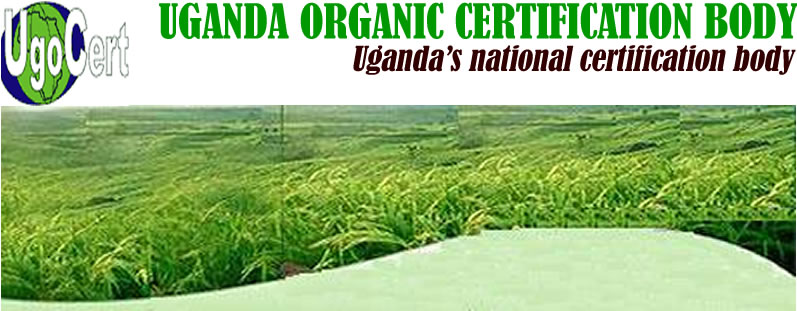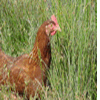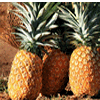Introduction: Why Integrating Farming with Organic Livestocking?
The key to organic livestock production is the use of natural fertilizers and pesticides. However, these materials can be expensive.
Organic livestock production is a new industry that has the potential to grow exponentially in the future. It is important for companies to understand how to integrate it with their current business. There are several ways that companies can integrate organic livestock production into their current operations:
– by using manure from their own animals or other farms as fertilizer
– by using animal waste as a natural pesticide
– by purchasing feed made from recycled materials such as plastic, cardboard, and paper.
What are the Benefits of using AI to increase production?
The use of organic livestock production has increased in recent years, as it is more environmentally friendly and animal welfare-friendly. However, the demand for organic livestock has been relatively low compared to conventional production.
There are several factors that contribute to this demand, including the cost of organic livestock and lack of knowledge about the benefits of using organic livestock in farming.
Organic livestock production is a growing industry, with the goal of reducing the impact of agricultural practices on the environment and animal welfare.
Organic livestock production has a lot of challenges to overcome, such as how to integrate organic livestock into agricultural practices. There are many methods that can be used to improve this process, including using AI and automation.
AI can help in improving animal welfare by providing more efficient management strategies for organic farms. This includes predicting animal behavior and managing resources more effectively.
How will AI be used in the future of sustainable agriculture?
Organic livestock production is a growing trend in the food industry. The goal of organic livestock production is to produce food in a way that doesn’t harm the environment and animals.
Organic livestock production can be done by integrating with existing agricultural practices or by completely eliminating all conventional inputs such as antibiotics, pesticides, and hormones.
Organic livestock production can be done by integrating with existing agricultural practices or by completely eliminating all conventional inputs such as antibiotics, pesticides, and hormones.
How do you integrate AI into your farm management?
The organic livestock production industry is projected to grow by $3.4 billion in the next decade and will employ more than 200,000 people.
The future of agriculture is not just about technology but also about how it integrates with organic production. The integration of AI into agriculture can help improve the efficiency of the process and make it more accessible to farmers who are looking for new ways to produce food.
In order to facilitate this, some companies are using artificial intelligence tools like chatbots to connect with farmers and help them make better decisions on what they should grow or raise.
The world’s population is expected to increase by 2.4 billion by 2050 and the demand for food will increase due to urbanization and a growing middle class.
In order to address this massive demand for food, we need to make sure that our agriculture is sustainable, environmentally friendly, and profitable.
There are some farmers who are already integrating organic livestock production into their farming practices in order to meet these demands.
What is Machine Learning and How Does it Impact Farmers & Businesses?
In the past, organic livestock production has been a difficult process. Organic livestock producers have to use expensive feed and manage their animals in small spaces. With the integration of AI technology, organic farmers are able to produce high-quality meat without using any chemicals or antibiotics.
The future of agriculture is looking brighter with the help of AI technology.
Agriculture is the second most important industry in the world, and organic livestock production is a growing trend. Organic livestock production is a way of producing food without using any synthetic chemicals or genetically modified organisms.
The role of AI in this industry is to provide insights into how to improve the performance of livestock. AI can also be used to predict weather patterns and optimize feed intake by animals.
Conclusion: Start Using an AI Writing Assistant Today to Supercharge Your Productivity & Creativity
This article will discuss how livestock production can be integrated with organic agriculture. With the help of AI, livestock production is becoming more efficient and sustainable.
Introduction: This article discusses how AI can be used to improve the efficiency of organic livestock production and make it more sustainable.
- Coque téléphone Samsung J3 – Protégez votre téléphone avec styleCoque téléphone Samsung J3 – Protégez votre téléphone avec style Coque téléphone Samsung J3 – Protégez votre téléphone avec style Choisir la bonne coque pour votre téléphone Samsung J3 Lorsque vous possédez un téléphone Samsung J3, il est important de le protéger contre les rayures, les chocs et les chutes. Une des meilleures façons de… Read more: Coque téléphone Samsung J3 – Protégez votre téléphone avec style
- The Rise of Coffee Vape Juice: A Blend of Two AddictionsThe Rise of Coffee Vape Juice: A Blend of Two Addictions The Rise of Coffee Vape Juice: A Blend of Two Addictions The Growing Popularity of Coffee Vape Juice Coffee and vaping are two trends that have taken the world by storm in recent years. Both have their own loyal fan base and have become… Read more: The Rise of Coffee Vape Juice: A Blend of Two Addictions
- The Rise of Burberry Replica Bags: A Fashion Trend or a Cause for Concern?The Rise of Burberry Replica Bags: A Fashion Trend or a Cause for Concern? The Rise of Burberry Replica Bags: A Fashion Trend or a Cause for Concern? The Iconic Burberry Brand Burberry is a British luxury fashion house known for its iconic tartan pattern and trench coats. Founded in 1856 by Thomas Burberry, the… Read more: The Rise of Burberry Replica Bags: A Fashion Trend or a Cause for Concern?
- The Importance of Maintaining a Healthy and Balanced Ecosystem: How it Benefits Us and the EnvironmentIntroduction: Understanding the Significance of a Healthy and Balanced Ecosystem Imagine a world where nature thrives in perfect harmony, where every living organism plays a vital role in maintaining the delicate balance of our planet. This is the power of a healthy ecosystem. Ecosystems are not only beautiful and awe-inspiring, but they also serve as… Read more: The Importance of Maintaining a Healthy and Balanced Ecosystem: How it Benefits Us and the Environment
- The Importance of Embracing Environmentally Sustainable Practices for a Greener Futureenvironmentally sustainable practices, greener future, climate change, renewable energy, reduce carbon footprint, eco-friendly alternatives. In today’s world, the importance of embracing environmentally sustainable practices cannot be overstated. With the growing concern over climate change and its impact on our planet, it is crucial that we take proactive steps towards creating a greener future. One of… Read more: The Importance of Embracing Environmentally Sustainable Practices for a Greener Future
- Learn How to Check for Soil Health Issues and Improve Your Garden’s ProductivityIntroduction: The Importance of Soil Health and Its Impact on Plant Growth Ensuring soil health is crucial for optimal plant growth and garden productivity. The quality of soil directly impacts the nutrients available to plants, their ability to absorb water, and overall resilience against pests and diseases. By prioritizing soil health, gardeners can create thriving… Read more: Learn How to Check for Soil Health Issues and Improve Your Garden’s Productivity
- The Latest Developments Elsewhere: Exploring the Exciting Advancements in Various FieldsThe world we live in is constantly evolving and progressing at an unprecedented pace. In every corner of the globe, remarkable advancements are being made across a multitude of fields. From science and technology to medicine and beyond, the latest developments are shaping the way we live, work, and interact with the world around us.… Read more: The Latest Developments Elsewhere: Exploring the Exciting Advancements in Various Fields
- The Importance of Soil Health and Nutrient Management: Enhancing Crop Productivity and Sustainable AgricultureIntroduction: Understanding the Vital Role of Soil Health in Agriculture In today’s rapidly changing world, the importance of soil health and sustainable agriculture practices cannot be overstated. As farmers and agricultural professionals strive to maximize crop productivity while minimizing environmental impact, the management of soil nutrients and fertility plays a crucial role. One key aspect… Read more: The Importance of Soil Health and Nutrient Management: Enhancing Crop Productivity and Sustainable Agriculture
- The Importance of Organic Standards: Ensuring Trustworthy and Sustainable AgricultureOrganic standards, trustworthy agriculture, sustainable agriculture, consumer trust, environmental impact, health benefits. In today’s world where consumers are becoming increasingly conscious about the food they consume and its impact on their health and the environment, organic standards play a crucial role in ensuring trustworthy and sustainable agriculture practices. These standards not only provide a framework… Read more: The Importance of Organic Standards: Ensuring Trustworthy and Sustainable Agriculture






